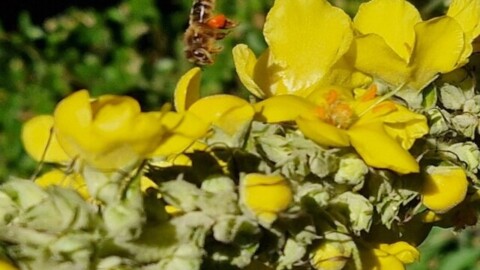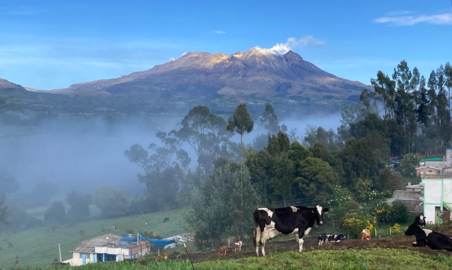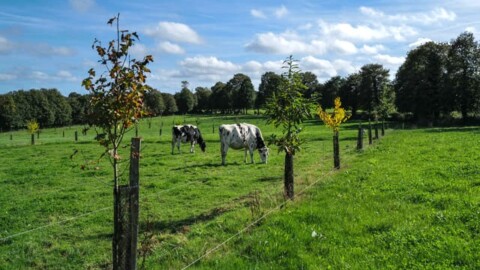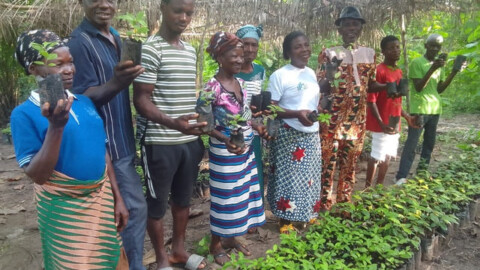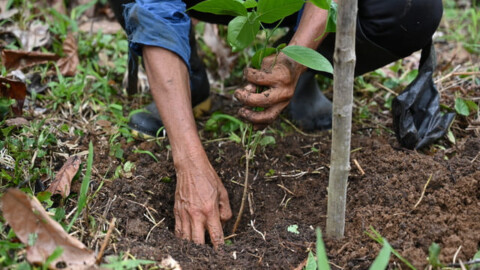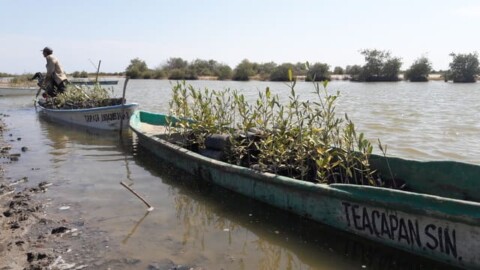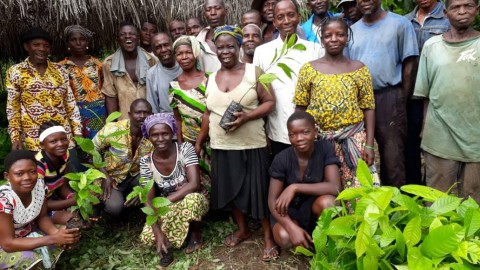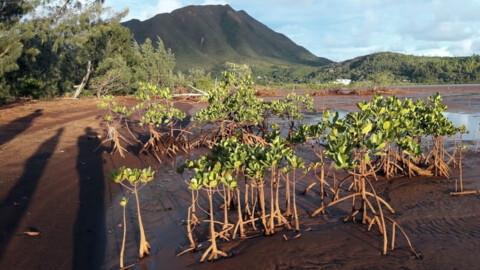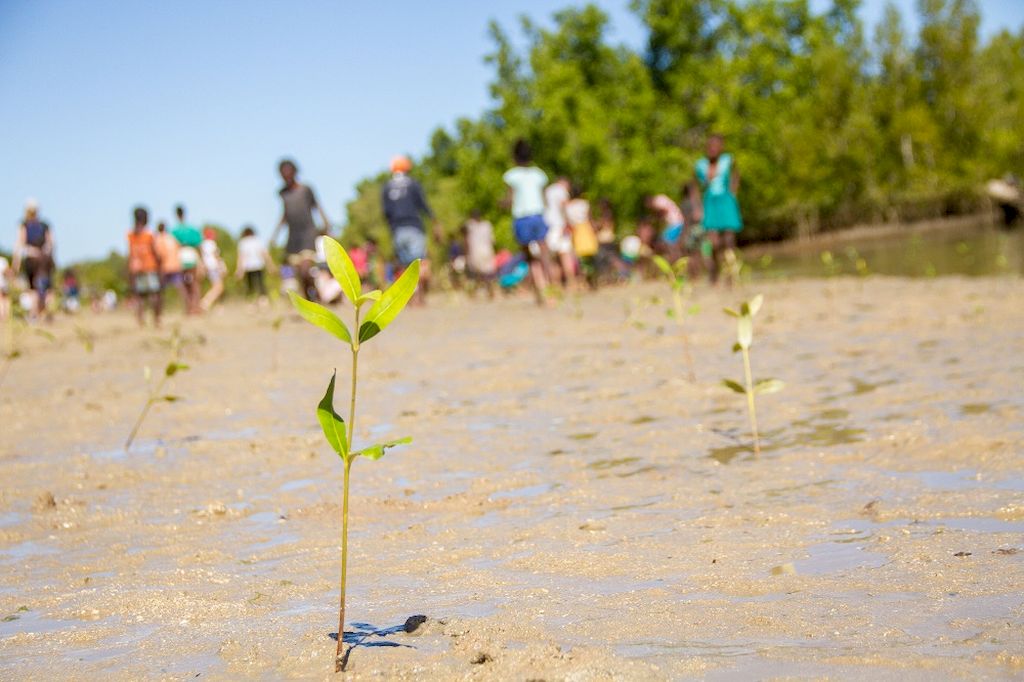
Background & challenges
The project is located between the villages of Tsongeritelo and Ambotsibotsiky, in the Atsimo Andrefana region southwest of the island. This region is famous for its mangroves, growing along the shores of the Mozambique Channel (Indian Ocean).
The local inhabitants are originally from the Vezo, a semi-nomadic ethnic group with close ties to the sea. Generations of these people have lived in harmony with the ocean, lagoons, and mangroves. Nowadays, the population lives mainly off sea and coastal fishing, as well as agriculture – growing sweet potatoes and producing salt – are their main activity.
Unfortunately, climate change, massive deforestation and destruction of the mangroves, population growth, and industrial offshore fisheries have greatly disrupted this way of life. Ninety percent of people in the region live below the poverty line, suffer from food insecurity, and are therefore extremely vulnerable to climate change.
Mangroves are vital for local populations, providing them with food, firewood and building materials for their houses. They also have medicinal properties.
One of the priorities of the project is to boost the management and restoration of degraded natural resources, as well as the ability of households in the region to adapt to climate change for food and food security.
Hence the project aims to plant 66,264 mangrove trees with the active involvement of 3 300 students from surrounding schools.
The educational aspect this project will enable the children, by planting their own tree, to:
- discover the richness of the forest and mangroves and reconnect with nature;
- act in the public interest by making a long-term gesture that is free for themselves, for others and generations;
For the environment, planting the trees will deliver the following benefits:
- tackle erosion and preserve water resources;
- enrich biodiversity and increase the presence of fish and shellfish near the mangroves;
- tackle poverty and food insecurity;
- directly tackle global warming by capturing carbon and planting adapted species.
This project is the continuation of projects carried out since 2021 in the region.
Project type

Educational mangrove planting
Beneficiaries

Schools in the district of Tuléar I & II: 3 300 pupils, the teachers, parents and families of the young participants, elected officials and local authorities involved in the project, and village communities neighbouring the plantation areas.
Number of trees

73 626 trees planted to retain 66 264
Species planted

Orange mangrove, Bruguiera gymnorhiza; red mangrove, Rhizophora mucronata; yellow mangrove, Ceriops tagal; grey mangrove, Avicennia marina; flower mangrove, Sonneratia alba
Partner

Eau de Coco and Bel Avenir
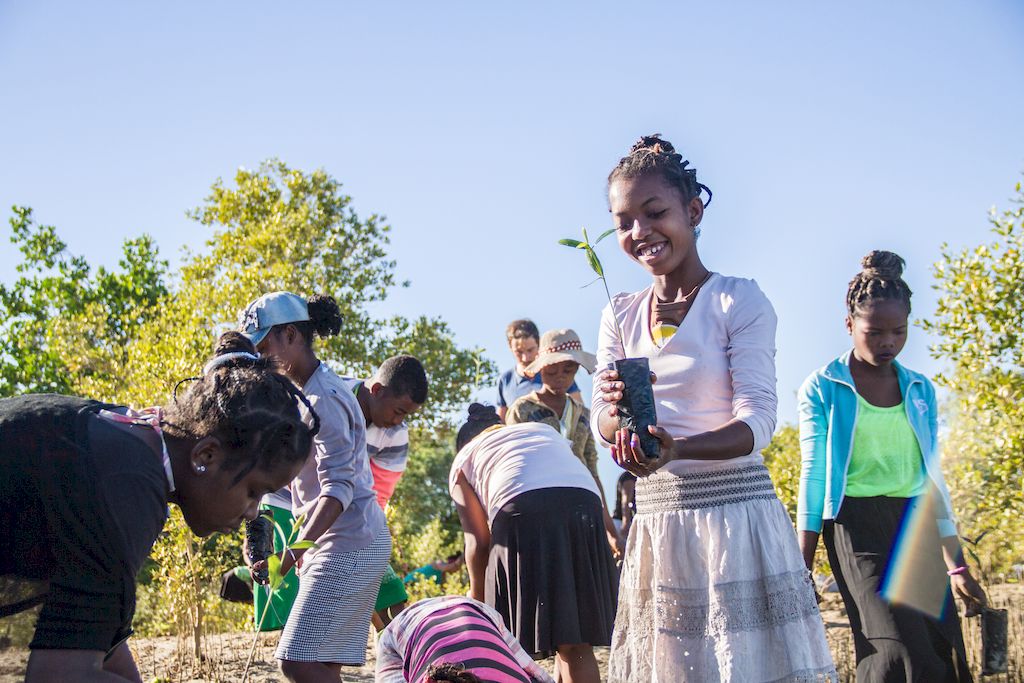
Works timeline
The preparation of seedlings, plants and transplantation of young mangrove seedlings took place throughout the year between 2024 and 2026.
Period 1: January to April 2024/2025 and 2026
- Identification of partner schools by Eau de Coco and contact
- Selection of eco-system plots (Mangrove…) and preparation of seedlings, seedlings and transplantation of mangrove seedlings
Period 2: April to June 2024/2025/2026
- Preparation of reforestation plot
- Presentation of the project in class by Eau de Coco
- Discover the world’s forests in class, including Madagascar’s threatened forests
Period 3: June and July 2024/2025/2026
- Reforestation days with students
Period 4: July to November 2024/2025/2026
- Classroom educational workshops
- Teacher facilitation time on environmental topics
- Assessment of student achievement
Period 5: November and December 2024/2025/2026
- Planting days with other students
Period 6: Years 2027/2028/2029
- Monitoring of plantings (inventory and assessment of plant growth)
- Project Evolution Youth Information Session
Planting partner
- The Bel Avenir programme in Madagascar
- The Coconut Water programme in Cambodia
- The ESIP-ECSI programme (Education for International Solidarity and Peace) throughout France
Each of these programmes has three focus areas:
- Education and the fight against child labour
- Health
- Environment
In this last area, Eau de Coco develops numerous actions to protect and conserve biodiversity together with local communities. The project subject of this article is part of one of these actions: restoring a mangrove (3 hectares – Belalanda – Tuléar district I & II – Atsimo Andrefana region) with the village community and its children.
Budget
The total budget to be raised is €364,452, i.e. €5.50 per perennial tree,
- 93% of which is earmarked for the planting project, broken down as follows:
- Mangrove planting: €1.84
- Educational activities in Madagascar: €1.27
- Monitoring plantations, replanting and hazards: €0.37
- Project management, monitoring and evaluation costs: €0.91
- Collection, monitoring and communication costs shared across all A Tree for You projects (13%): €0.72
- and 7% (€0.39) for structural costs of A Tree for You.
They donated to this project :



